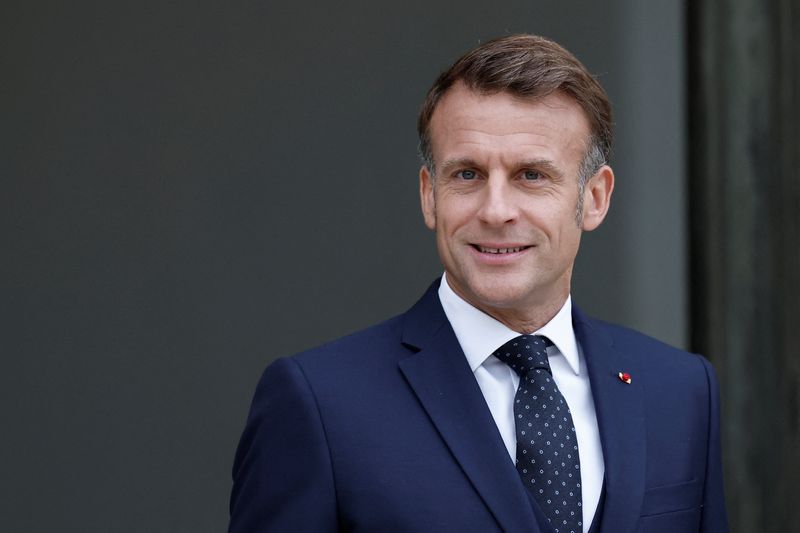By Inti Landauro and Makini Brice
PARIS (Reuters) -French President Emmanuel Macron was on Thursday searching for his sixth prime minister in under two years, hoping his next pick can steer a budget through a legislature riven by crisis.
Macron’s office said on Wednesday he would appoint a new prime minister within 48 hours, after outgoing Prime Minister Sebastien Lecornu held two days of talks to seek a way out of France’s worst political crisis in decades.
The political paralysis has made it deeply challenging to pass a belt-tightening budget, demanded by investors increasingly worried by France’s yawning deficit.
“The question that is posed today is whether there are enough people who are responsible,” government spokesperson Aurore Berge told RTL radio. “I think this is the last chance.”
LECORNU SAYS A BUDGET DEAL IS POSSIBLE
Lecornu tendered his and his government’s resignation on Monday, hours after announcing the cabinet line-up, making it the shortest-lived administration in modern France.
He said in a television interview on Wednesday that, during talks Macron asked him to hold with party leaders after he resigned, he had learned that a majority of lawmakers opposed holding a snap parliamentary election and that there was a path, even if a tough one, to passing a budget by year-end.
Another key issue is Macron’s 2023 pension overhaul, which gradually raises the retirement age from 62 to 64. Members of the left have called for the law to be repealed or suspended.
WHAT’S NEXT?
For now, rival parties have largely stuck to their views on how to proceed, and there has been no indication of who could be the next prime minister.
The Socialists said Macron should appoint a prime minister from the left. The Republicains, who are part of the outgoing government, said they would not support a leftist premier.
Meanwhile, Manuel Bompard, of the hard-left France Unbowed (LFI), repeated his calls for Macron to resign. Jordan Bardella, president of the far-right National Rally (RN), reiterated his party’s demand for a new parliamentary election.
On the streets of Paris, people said they hoped for more stability.
“Well, having a prime minister who stays in office would be a good start, I think,” said Mathilde Marcel, 40. “And then, obviously, things need to move forward and reforms need to be implemented.”
The crisis has caused jitters on financial markets but bonds held onto gains from the day before on optimism that France can avoid a snap parliamentary election and agree on a budget.
(Reporting by Makini Brice, Inti Landauro, Elissa Darwish and Marco Trujillo; Editing by Gabriel Stargardter, Ingrid Melander and Timothy Heritage)
